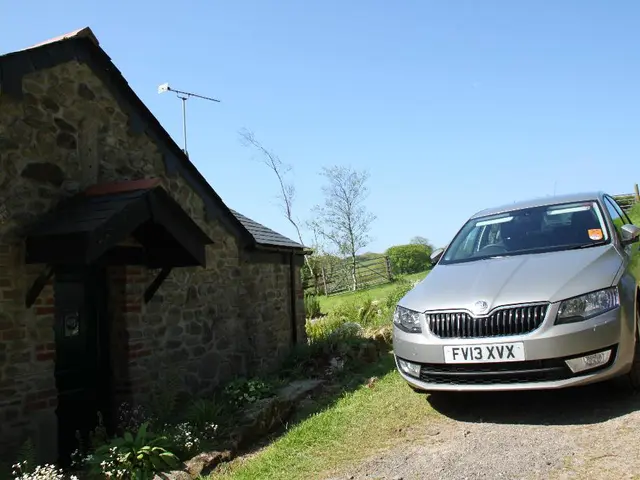Keep Your Wallet and the Planet Happy: Transition to Summer Mode for Energy Savings
Energy Efficiency and Financial Benefits: Summer Energy Heating Strategies
Want to reduce your energy consumption and save some cash? Switch your home heating to summer mode! The Consumer Center Baden-Württemberg suggests this as an effective energy-saving measure.
When summer rolls around, it's essential to cut down on unnecessary energy use, especially with heating. Although it might seem obvious that you'd turn off the heating altogether during the summer months, that might not always be the best strategy. Some self-regulating systems continue to activate in summer mode when temperatures drop, like during cooler nights or summer storms. This triggers the system to produce warmth, leading to energy waste that may go unnoticed, as pointed out by the German Liquid Gas Association.
To prevent unnecessary energy consumption and the growth of potentially harmful bacteria in stagnant water, don't turn your heating off completely unless you have a separate water heater.
When and How to Transition
Switching your heating system to summer mode is simple and can either be done at the system itself or via a heating app. Modern systems might even handle the switch automatically, but it's wise to double-check. The ideal time to make the switch is when the night temperatures consistently stay between 12-15 degrees, according toconsumer advocates. This change can save up to eight percent of your annual heating costs, translating to potential savings of £30-£90 per summer in the UK[5].
Full-Tilt Valves in Summer Mode
Consumer experts recommend turning the thermostat valves on heating systems to the maximum, rather than zero, while in summer mode. This prevents the valves from sticking and causing issues when you switch back to heating in the fall. Because of summer mode, the heating bodies won't get hot.
Tenants typically have no control over the heating system and therefore should check with their landlord or property manager before making any adjustments.
Heating savings are an essential part of managing your energy costs, and switching to summer mode is a smart move for both your wallet and the environment.
Sources: ntv.de, awi/dpa
- Energy Efficiency
- Home Improvements
- Renters
- Landlords
- Energy Conservation
- Air Conditioning
- Summer Preparation
- Heating Maintenance
- Energy Bills
- Energy-Saving Strategies
- Boilers
Additional Insights
Switching home heating systems to summer mode, particularly boilers, can yield substantial energy and money savings for homeowners. Shifting to summer mode, which typically disables central heating while maintaining hot water supply, can reduce energy bills by over 10%. United Kingdom residents can save approximately £30-£90 per summer[5] as a result.
For cooling systems, such as air conditioning units, setting the thermostat to 78°F (25.5°C) while at home and raising it when away can help conserve energy. Each degree raised can save up to 8% on cooling costs[4]. The temperature for the summer mode transition depends on the system in use but ultimately focuses on optimization without relying on full heating or cooling capabilities.
- EC countries may want to consider implementing stricter employment policies to encourage energy conservation, such as incentives for companies to improve their energy efficiency in summer months, aligning with the advice given for homeowners.
- To minimize the financial impact on industries that rely heavily on energy consumption, governments could consider offering funding or tax breaks for investments in energy-efficient technologies and practices, following the concept of energy savings translating to potential savings for both individuals and businesses.








